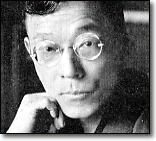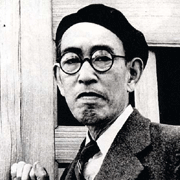After coming across a reference to a poem of his in something else I was reading, I’ve been enjoying the poetry of Du Mu lately (who due to his surname has benefited from the sobriquet “Little Du” for over a millennium). The poem referenced was his “Releasing my thoughts”:
遣懷
落魄江南載酒行
楚腰腸斷掌中輕
十年一覺揚州夢
贏得青樓薄倖名
Roughly,
Wasted, with wine in hand, I made my way south of the Jiang,
and in the palm of my hand, desolate beauties danced.
Now wakened from this ten year Yangzhou dream,
A hustler’s repute in the brothels is all I have to show.
I was confused by a couple translations of the poem I saw, because I had been looking at the poem in the Three-hundred Tang Poems, the text of which varies somewhat from what I’ve quoted here.
I was recently home visiting my family, and when I mentioned this poem to my father, he showed me a poem attributed to Du Mu he had copied down a long time ago that he was very fond of:
THE GARDEN OF THE GOLDEN VALLEY
Stories of passion make sweet dust,
Calm water, grasses unconcerned.
At sunset, when birds cry in the wind,
Petals are falling like a girl’s robe long ago.
Out of curiosity, I looked up A. C. Graham’s version of this poem in his excellent Poems of the Late T’ang:
Shih Ch’ung’s ‘Golden Valley’ Garden
Scattered pomp has fallen to the scented dust.
The streaming waters know no care, the weeds claim spring for their own.
In the East wind at sunset the plaintive birds cry:
Petals on the ground are her likeness still beneath the tower where she fell.
Graham helpfully quotes from the biography of Shi Chong 石崇 from the Jin shu to explain the classical allusion being made in the last line. It was easy enough from the title to track down the original text of the poem, which is another heavily anthologized piece:
金谷園
繁華事散逐香塵
流水無情草自春
日暮東風怨啼鳥
落花猶似墜樓人
which made it clear that Graham’s version took fewer liberties with the source text, but that didn’t answer the real question: What had become of the “girl’s robe long ago” in my father’s beloved poem?
My recent experience led me to suspect some sort of alternate text at work here again, as in the first poem. But a quick glance through some annotated editions of Du Mu didn’t turn anything up. The magic of web-searching did turn up the source of my father’s poem, however: The Jade Mountain, a translation of the Three-hundred Tang Poems by Witter Bynner and Kiang Kang-hu from 1929, so I borrowed a copy from the library.
Bynner and Kiang include a note to their translation of the poem in the back of the book, explaining the allusion:
The man who owned this garden, Shih Ch’ung of the Chin Dynasty, was the richest man of his time. The last line of this poem alludes one of many stories about him. A certain general coveted a favorite of his, a girl named Lu-chu, whom Shih Ch’ung refused to surrender. Presently the general, charging him with treason, sent troops to seize Lu-chu. She shut herself in her high chamber; and when they took Shih Ch’ung, she threw herself from the window to her death.
This is all very informative, but it tells me nothing about how that robe got into the poem (or what happened to the tower, for that matter). The earlier translation makes something vaguely erotic and decadent out of a much more straightforward historical lament (which Graham’s translation accurately reflects). I know which one I like.




